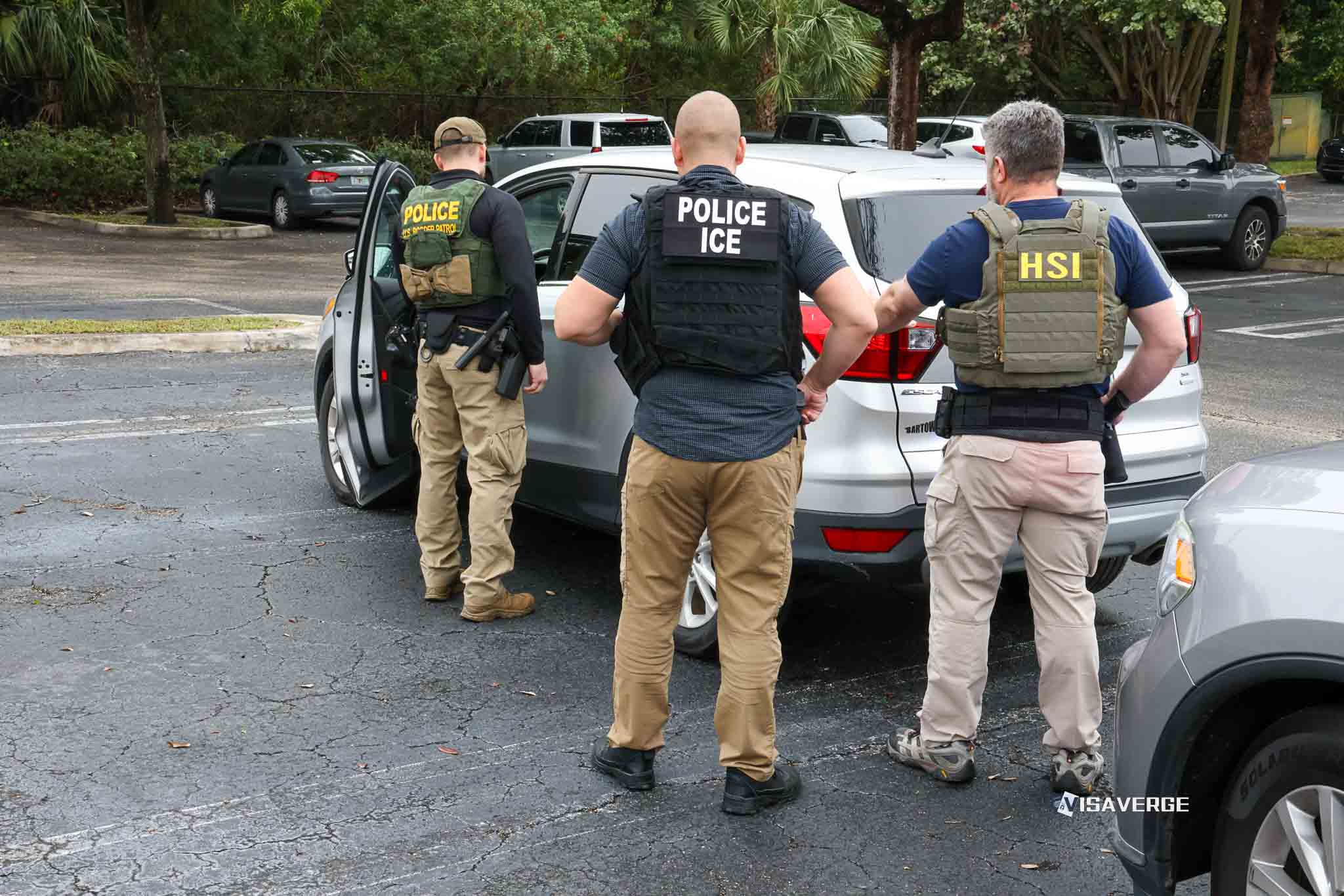Key Takeaways
• DHS reversed decision to abolish CIS Ombudsman, CRCL, and OIDO after two-month suspension and legal challenges.
• Suspension disrupted immigrant support, causing visa delays and loss of detention oversight from March 21 to May 23, 2025.
• Advocacy groups urge full restoration of oversight offices amid ongoing lawsuit and uncertain operational capacity.
The Department of Homeland Security’s Reversal on Oversight Offices: An Analytical Review
Purpose and Scope

This analysis examines the Department of Homeland Security’s (DHS) recent reversal of its decision to abolish three key oversight offices: the Office of the Citizenship and Immigration Services (CIS) Ombudsman, the Office for Civil Rights and Civil Liberties (CRCL), and the Office of the Immigration Detention Ombudsman (OIDO). The review covers the timeline of events, legal mandates, operational impacts, stakeholder responses, and the current status of these offices. The goal is to provide a clear, evidence-based understanding of the situation for immigrants, legal practitioners, advocacy groups, and policymakers.
Methodology
This content draws on official DHS statements, court filings, advocacy group press releases, and media reports from March to May 2025. It presents a chronological account of events, describes the legal and practical functions of the affected offices, and summarizes expert and stakeholder commentary. Data is presented in narrative, tabular, and bullet-point formats to enhance clarity. Visual descriptions are included to help readers picture the sequence and impact of developments. Comparisons and trends are highlighted to show how the situation evolved and what it means for different groups.
Key Findings
- DHS reversed its decision to abolish the CIS Ombudsman, CRCL, and OIDO after legal action and public pressure.
- The two-month suspension of these offices significantly disrupted oversight and support for immigrants, especially those facing urgent or complex problems.
- Advocacy groups and legal experts remain concerned about whether these offices will be fully restored to their previous operational capacity.
- The lawsuit challenging the closures is ongoing, with the court requiring DHS to clarify the status of these offices.
- Affected individuals can still seek help from the CIS Ombudsman and advocacy organizations, but the long-term stability of these offices remains uncertain.
Background and Timeline of Events
The crisis began on March 21, 2025, when the Department of Homeland Security placed all staff from the CIS Ombudsman, CRCL, and OIDO on 60-day administrative leave. While this did not officially close the offices, it effectively stopped their work by removing all personnel. The Catholic Legal Immigration Network (CLINIC) described this as “stripping vital safeguards from the immigration system.”
Timeline Overview:
| Date | Event |
|---|---|
| March 21, 2025 | DHS places all staff from the three oversight offices on 60-day administrative leave |
| March 25, 2025 | CLINIC issues press release condemning the closures |
| April 5, 2025 | Boundless Immigration publishes analysis of the suspension’s impact |
| April 14, 2025 | Jeelani Law firm releases report on impacts to immigrants |
| April 29, 2025 | CLINIC releases action toolkit for advocacy efforts |
| May 23, 2025 | DHS announces reversal of decision following court hearing |
| May 28, 2025 | International media confirms the reversal |
Visual Description:
Imagine a timeline stretching from March to May 2025, with a sharp drop in oversight activity starting on March 21, followed by a gradual buildup of advocacy and legal action, and a sudden restoration of office functions after May 23.
Legal Mandates and Functions of the Oversight Offices
CIS Ombudsman
- Established by: Homeland Security Act of 2002 (6 USC 272)
- Main duties:
- Help individuals and employers resolve problems with U.S. Citizenship and Immigration Services (USCIS)
- Identify widespread problems in USCIS operations
- Suggest changes to fix these problems
- Reporting: Directly to the Deputy Secretary of Homeland Security
- Requirements: Must have experience in customer service and immigration law
- Local presence: Must have at least one ombudsman in each state, with published contact information
- Regular meetings: Required with the USCIS Director to address serious service problems
Office for Civil Rights and Civil Liberties (CRCL)
- Role: Protect civil rights and civil liberties in all DHS operations
- Duties:
- Investigate complaints about rights violations
- Advise DHS on how to follow constitutional protections
Office of the Immigration Detention Ombudsman (OIDO)
- Created by: 2020 Consolidated Appropriations Act
- Independent from: U.S. Immigration and Customs Enforcement (ICE) and Customs and Border Protection (CBP)
- Main tasks:
- Help people in immigration detention with complaints
- Oversee detention facilities independently
- Conduct both announced and surprise inspections
- Review contracts for detention facilities
- Report on detention conditions
Data Presentation: Impact of the Suspension
During the two-month suspension, these offices could not perform their main functions. This had real and immediate effects on immigrants and their families.
Key Areas Affected:
- Processing Delays: Many H-1B visa holders faced long waits for extensions, leaving them unsure about their legal status and ability to work.
- Student Visas: F-1 students applying for Optional Practical Training (OPT) had applications wrongly rejected by USCIS, with no quick way to fix the errors.
- Systemic Problems: When normal channels failed, immigrants lost a vital way to get help with complex or unusual cases.
- Detention Oversight: People in immigration detention lost an independent office to review complaints and inspect facilities.
Visual Description:
Picture a flowchart where immigrants with problems would usually have several paths for help: direct USCIS contact, the CIS Ombudsman, CRCL, or OIDO. During the suspension, the paths to the oversight offices were blocked, forcing people to rely on slower, less effective options like congressional inquiries or lawsuits.
Comparisons, Trends, and Patterns
Before Suspension:
– Oversight offices provided a safety net for immigrants facing errors, delays, or rights violations.
– Regular communication between these offices and DHS helped fix problems quickly.
During Suspension:
– Immigrants had fewer options for help.
– Problems took longer to resolve, and some went unaddressed.
– Advocacy groups reported a rise in complaints and confusion.
After Reversal:
– Offices are officially open again, but it is unclear if they are fully staffed or operating at previous levels.
– Advocacy groups and legal experts are watching closely to see if services return to normal.
Evidence-Based Conclusions
- Oversight offices are essential for fairness and accountability in the immigration system. Their absence led to real harm for immigrants, especially those with urgent or complicated cases.
- Legal action and public advocacy were key in forcing DHS to reverse its decision. The lawsuit and court hearing directly led to the announcement that the offices would remain open.
- Restoration of these offices is not just about their existence, but about their ability to function fully. Advocacy groups stress that a simple statement on a website is not enough; staff must be reinstated, and all services must resume.
Limitations of the Current Situation
- Operational Uncertainty: It is not clear if all staff have returned or if the offices are working at full capacity.
- Ongoing Litigation: The lawsuit challenging the closures is still active, and future court decisions could affect the offices’ status.
- Limited Public Information: DHS has posted short notes on its websites, but has not provided detailed updates about staffing or case processing.
- Potential for Future Disruption: Without clear legal or policy safeguards, these offices could face similar threats in the future.
Stakeholder Responses
Advocacy Groups:
Groups like the Southern Border Communities Coalition and CLINIC welcomed the reversal but remain cautious. They demand full restoration of services and thorough investigation of all complaints. As Lilian Serrano, Director of the Southern Border Communities Coalition, put it: “A disclaimer on their website after extensive litigation is not enough. DHS must fully restore these offices and ensure every complaint of abuse is thoroughly investigated.”
Legal Experts:
Lawyers and legal advocates stress the importance of these offices for justice and transparency. Anna Gallagher, executive director at CLINIC, said: “These offices have played a crucial role in ensuring fairness, accountability, and transparency within the immigration system. For years, our legal practitioners have worked closely with these offices to assist immigrants and U.S. residents seeking justice. Their elimination weakens oversight at a time when it is needed most.”
Practical Guidance for Affected Individuals
- CIS Ombudsman: Individuals and employers can still submit case assistance requests to the CIS Ombudsman. This office helps when normal USCIS channels have failed. To submit a request, visit the official CIS Ombudsman page.
- Advocacy Resources: CLINIC’s Action Toolkit provides tools for advocacy and guidance on how to support the restoration of these offices.
- Stay Informed: Monitor the official DHS websites for updates on the CIS Ombudsman, CRCL, and OIDO. Consult with immigration attorneys or advocacy organizations for the latest advice.
- Civil Rights Complaints: If you believe your civil rights have been violated by DHS, you can file a complaint with the Office for Civil Rights and Civil Liberties.
Comparative Analysis: U.S. Oversight vs. Other Countries
While this analysis focuses on the United States 🇺🇸, it is worth noting that many countries have independent oversight bodies for immigration services. However, the U.S. system is unique in having multiple offices with specific mandates for customer service, civil rights, and detention oversight. The temporary suspension of all three at once is unusual and highlights the importance of legal and public checks on executive power.
Trends and Patterns Moving Forward
- Increased Legal Scrutiny: The quick legal response and court intervention suggest that future attempts to weaken oversight will face strong challenges.
- Public Awareness: Media coverage and advocacy have raised awareness about the importance of these offices, which may lead to stronger protections in the future.
- Ongoing Advocacy: Groups continue to push for not just the existence, but the full functioning, of oversight offices.
Limitations of This Analysis
- Data Gaps: There is limited public information about the internal operations of the offices since the reversal.
- Future Uncertainty: The outcome of ongoing litigation could change the situation.
- Scope: This review is based on available reports and official statements as of late May 2025.
Conclusion
The Department of Homeland Security’s reversal of its decision to abolish the CIS Ombudsman, Office for Civil Rights and Civil Liberties, and Office of the Immigration Detention Ombudsman is a major development for the U.S. immigration system. The two-month suspension of these offices exposed the risks of removing key oversight and support mechanisms. While the offices are now officially open, their full restoration remains a work in progress, with ongoing legal and advocacy efforts shaping the outcome.
Actionable Takeaways:
- Immigrants and advocates should continue to use the CIS Ombudsman and CRCL complaint channels for unresolved issues.
- Monitor official DHS announcements and consult trusted legal or advocacy organizations for updates.
- Support efforts to ensure these offices are fully staffed and empowered to carry out their mandates.
For more information about the CIS Ombudsman and how to request assistance, visit the official DHS CIS Ombudsman page. According to analysis by VisaVerge.com, the continued existence and functioning of these oversight offices are vital for maintaining fairness and accountability in the U.S. immigration system.
References:
– Department of Homeland Security official websites
– CLINIC Action Toolkit
– Times of India, May 28, 2025
– U.S. District Court for the District of Columbia filings
This analytical review aims to provide a clear, unbiased account of the situation and practical guidance for those affected. The future of these oversight offices will depend on continued legal, public, and political attention.
Learn Today
Department of Homeland Security → U.S. federal agency overseeing immigration, border security, and public safety functions.
CIS Ombudsman → Office assisting individuals and employers with USCIS issues and systemic immigration problems.
Office for Civil Rights and Civil Liberties → DHS office protecting civil rights and investigating constitutional violations in agency operations.
Office of the Immigration Detention Ombudsman → Independent office overseeing immigration detention conditions and handling detainee complaints.
Administrative Leave → Temporary suspension from work duties without termination, often pending review or investigation.
This Article in a Nutshell
The DHS reversed its closure of three immigrant oversight offices after legal actions exposed harms caused by a two-month suspension. These offices safeguard immigrant rights and support visa processing. Though reopened, their full restoration remains uncertain, keeping advocates attentive to protect vital immigration oversight functions in the U.S. system.
— By VisaVerge.com













